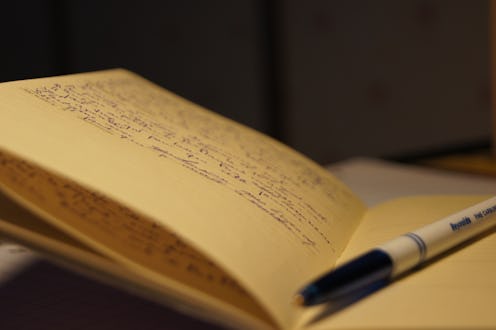
Though I find the advances in artificial intelligence and sentient robot machines important and fascinating, I remain skeptical towards people who say computers will one day take over all human jobs — especially jobs that pertain to the humanities, like art, writing, and teaching. Despite my skepticism, of course, developers at IBM have cranked out the Tone Analyzer, a computer service that analyzes language to detect emotional tones and styles in written communication like e-mail, instant messages, or text. But that's not all: After the system figures out whether you're yelling at your ex or appeasing your roommates, it offers you suggestions to improve your tone and better convey your message. But does it actually work? There's only one way to find out, so I put it to the test.
The Tone Analyzer uses emotional, social, and writing cues to detect what you're saying and how you're saying it, as well as offer suggestions on how to revise it. Let's say you type out the word "enraged" — a pretty strong word that sometimes simply needs to be used. If, however, the Tone Analyzer thinks you need to soften your language, it will suggest a synonym — and if you use a word that it thinks is too soft, it will give you a suggestion for a stronger word, too.
I decided to put a few of my strongly- and not-so-strongly-worded messages into the analyzer to see what it detected. Here are the results:
1. A Message to An Irritating Friend
I consider this to be a pretty strongly-worded message I once sent to someone I used to be very close with; I fell out of touch with her, though, because she would always bail on plans to hang out. As you might imagine, I was pretty angry when I sent this message. Here's how the Tone Analyzer picked it apart:
The Tone Analyzer perceived my message to be mostly agreeable and open since I used words like "communication," and "trying." What it seemed to be unable to do was string those words together into a greater sense of meaning — for example, "You always come up with an excuse" was perceived to be mostly positive because of the individual words used, but when you put the words together and look at the context, they're clearly meant to confront someone.
Then, I clicked on the "percentile" tab and found that the Tone Analyzer found me to be almost equally tentative and confident in my writing, which is strange because those things are at very different ends of the spectrum.
It found that because "always" was a confident word and "unclear" was a tentative word, my tone must be a mixture of the two. Once again, the system failed to integrate context and meaning, going off a very basic algorithm that is unable to account for the bigger picture.
2. A Thank You Message
Next, I decided to let the website analyze a positive message filled with happy vibes and appreciation. This is what it found:
Initially, it seemed that the system did a little bit better this time. Yes! I was being agreeable and open, if a little bit contentious! I decided to take a look at the percentile chart:
The percentile chart told a slightly different story. According to this, though my social and writing tones were more or less acurate, my emotional tone was super negative because I used words like "sad," "seriously," and "ashamed." I decided to see how it told me to fix it by dragging my mouse over "ashamed" to see what synonyms it offered.
"Embarrassed" might have worked, but "humiliated" wasn't quite right and "guilty" was plain incorrect. The system once again failed to understand the context and feeling behind the message and suggested that I felt guilt for my crying session.
Overall, the platform is interesting because it certainly works on a very basic level in that it isn't wildly wrong 100 percent of the time. However, it's not a tool we should rely too much on, and its failings demonstrate why: To be a writer, you must have a nuanced understanding of vocabulary, tone, and colloquialisms which the computer just doesn't seem to have. For now, I think I'll stick to my writing classes and my beautiful fiction novels to learn how to be a better writer.
Images: Mehak Anwar/Bustle (7); anyvanille/Flickr